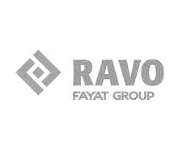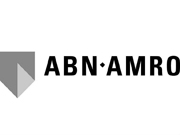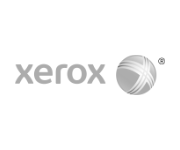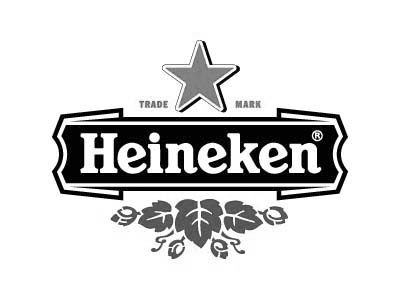A new era in Performance Management and associated conversation cycle
Welcome to the new era of performance management, where the integration of feedforward and the revision of traditional performance evaluations are central. This article delves into the dynamic world of modern organizational evaluation systems, witnessing a shift from annual appraisal conversations to a more flexible, development-oriented conversation cycle. By integrating the feedforward approach, as described by Direction and supported by insights from Harvard Business Review’s ‘The Performance Management Revolution’, we explore how organizations can effectively harness their employees’ potential while simultaneously enhancing their overall team and organizational performance. Short on time to read the entire article? Discover the 5 Key Takeaways at the end of the article.
Interested in a new conversation cycle through feedforward communication? Contact Marco Schreurs or Muriel Schrikkema for possibilities.
A NEW ERA IN PERFORMANCE MANAGEMENT AND ITS ASSOCIATED CONVERSATION CYCLE
Integration of traditional performance evaluations with a feedforward method of conversation
The world of performance management is changing. Organizations worldwide are challenged to revise and adapt their evaluation systems to the modern workplace. The shift from traditional, annual performance reviews to a more dynamic and development-oriented approach marks a turning point in how organizations manage and develop their employees’ potential.
This article provides insights into this evolution, with insights from the Harvard Business Review article ‘The Performance Management Revolution – The focus is shifting from accountability to learning’ and a focus on the feedforward approach of Direction. We explore how these approaches can be brought together to create a robust and effective performance management system that promotes both the individual growth of employees and the overall team and organizational performance.
The Evolution of Performance Management
For years, there has been a clear trend of moving away from traditional, annual performance reviews to flexible, continuous dialogues and feedback mechanisms. This shift is a response to changing organizational dynamics and the evolving needs and expectations of the modern employee. Organizations recognize the need for a more flexible and development-oriented evaluation system. Employees are seeking opportunities for personal growth and appreciate a supportive environment that assists in their continuous development.
Recent shifts in the work environment, such as the increase in remote working and the digitization of work processes, have further strengthened the need for more dynamic performance management approaches. This means that managers and teams must be effective in communicating not only physically but also digitally. The ability to monitor and discuss performance and objectives virtually is becoming increasingly important.
Additionally, the increasing emphasis on diversity, equality, and inclusivity plays a significant role in modernizing performance management systems. Organizations strive to minimize bias and create a fair, inclusive evaluation culture. This requires training and awareness among leaders on how to exercise inclusive leadership and keep evaluations free from unconscious biases. For example, this is happening in many university environments, introducing a new perspective on ‘recognition and appreciation’.
Moreover, there is a growing realization that wellbeing and mental health are essential for high performance. Modern performance management systems take factors such as work-life balance, stress levels, and overall wellbeing into their evaluations and development plans. This means that performance evaluations are not only focused on what employees achieve but also on how they achieve it and how it affects their wellbeing.
Finally, there is a shift from a top-down approach to a more collaborative, team-oriented approach. This means that performance management is not just the responsibility of the manager who evaluates, but of the entire team that collaborates, shares feedback, and sets collective goals. This approach fosters team spirit, mutual accountability, and contributes to a positive organizational feedforward culture.
For leaders, this means adopting a more coaching style of leadership. They are asked to conduct development-oriented conversations from a learning mindset, where they learn to create safety, optimally coach their people, further strengthen strengths, and positively address others’ responsibility. For employees, this means taking ownership of their own ambitions and development, making these positively fit within the larger framework and the course of the organization together with the leader, and taking concrete responsibility in that.
This is where the importance of feedforward communication comes in.
Integration of Feedforward into Performance Management
Since 2016, at Direction, we have been discussing the importance of conducting feedforward development conversations, which represent a positive and development-oriented approach to performance management. This approach seamlessly aligns with the contemporary trend of flexible and continuous dialogues. Unlike traditional feedback methods, which often focus on identifying and correcting weaknesses (and are critically inclined), feedforward conversations encourage employees to reflect on their qualities and how they can deploy them for personal and organizational growth. This not only promotes a more positive work environment but also stimulates creativity, innovation, and collaboration.
Feedforward involves using questions that prompt employees to think about effectively deploying their qualities and future improvements in that context. Questions such as “How can you use your communication skills to make team meetings more productive?” or “In what ways can you apply your problem-solving skills to tackle the challenges of the current project?” promote constructive dialogue. This encourages employees to think ahead about how they can apply their skills and talents.
Integrating feedforward within performance management means that leaders and managers give positive, future-oriented feedback. Feedforward focused on the development and potential of employees, so that their contribution is of great added value in the context of the bigger picture. This emphasizes recognizing qualities and building a future where these are further developed. This approach fosters a culture of openness, mutual support, and trust, which is crucial for encouraging a proactive attitude towards personal and professional growth.
By placing feedforward at the center of performance management, we encourage a forward-thinking approach that focuses on growth and development and aligns well with today’s dynamic and changing work environments. This contrasts with traditional feedback methods, often associated with criticism and negativity. The feedforward approach fosters a positive outlook on the future, encouraging employees to fully utilize their potential and maximize their contribution to the organization.
Practical Application in Organizations
We advise organizations to train their leaders and managers in conducting continuous dialogue based on feedforward conversations. These trainings focus on strengthening communication skills and fostering a culture where openness and positive communication are central. Developing clear guidelines for feedforward conversations and offering workshops and coaching to improve employees’ self-awareness and insight into personal qualities are all part of this practical application. All this aims to achieve the collective goals and ambitions.
In this new era, it’s essential for organizations to recognize that traditional annual reviews no longer suffice. Harvard Business Review emphasizes that companies like Adobe, Dell, and Microsoft have transitioned to a system of regular check-ins. This highlights the value of frequent feedforward, linked to clear and achievable objectives, in improving employee engagement and satisfaction. Companies like General Electric and Gap have revised their systems to place more emphasis on teamwork and collective objectives.
Conclusion
The integration of feedforward into traditional performance management systems represents a significant shift in how organizations evaluate and develop their employees. By finding a balance between regular, positive feedback and the recognition and development of qualities, organizations can create a dynamic environment that fosters both individual growth and overall organizational performance. At Direction, we know that this new era in performance management offers a promising path for organizations striving for continuous improvement and a high level of employee satisfaction and engagement.
Interested in a new conversation cycle through feedforward communication? Contact Marco Schreurs or Muriel Schrikkema for possibilities.
KEY TAKEAWAYS
- Dynamic and Flexible Performance Management Approaches
The trend is shifting from annual performance reviews to continuous, flexible dialogues and feedback mechanisms. This meets the needs of the modern work environment and employees seeking personal growth and development. - Feedforward Approach for Positive Development
Feedforward conversations emphasize the qualities of employees and their future growth opportunities, unlike traditional feedback methods often focused on correcting weaknesses and giving criticism. Feedforward promotes a more positive, creative, and collaborative work environment. - Focus on Personal and Professional Growth
Modern performance management systems go beyond just performance evaluations; they also focus on the personal and professional growth of employees, including their wellbeing and work-life balance. - Shift to Team-Oriented and Collaborative Approach
There is a shift from a top-down assessment process to a more team-oriented and collaborative approach. This strengthens team spirit and fosters a culture of joint responsibility and positive organizational culture. - Feedforward as Key to Continuous Improvement and Engagement
By centering feedforward in performance management, organizations are encouraged to adopt a forward-thinking approach focused on continuous improvement and increased employee satisfaction, engagement, and workplace enjoyment.







